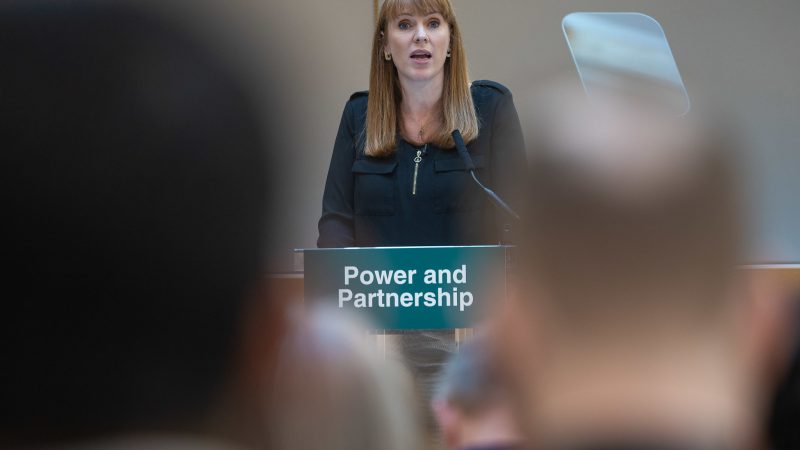
As six areas are fast-tracked to establish new Strategic Authorities this is a good week to reflect on Labour’s devolution policy. In the priority areas county council elections due in May will be postponed. Over the coming months, district councils and small unitaries will have to agree new, unitary, council boundaries. Elections will be held in May 2026 for directly elected mayors and the new unitaries. Labour has a 200 seat majority and four years to run so despite some rumbling, the prevailing mood is ‘this is going to happen’ . and the debate is ‘how will this work in practice’,
The big picture is now familiar. Individual ‘devo deals’ will be replaced with a statutory framework for three levels of Strategic Authorities with different levels of powers and resources. These range from the well-established city regions ‘Established Strategic Authorities’ to the less well-grounded or newer devolved areas with mayors ‘Mayoral Strategic Authorities’ , and finally those that choose not to have mayors for now ‘Foundation Strategic Authorities’.
New powers can be added to the framework, but not removed, creating ‘devolution by default’ over time. It should be clear how a Strategic Authority can be ‘promoted’ from one level to another. ‘Established Strategic Authorities’ will get single pot’ budgets covering a range of largely growth focussed budgets in the Established areas, with a much more extensive list of consultative/collaborative areas. Most strategic authorities will receive some additional finance and the promise of engagement with a wider range of government bodies. All areas will be required to produce a strategic spatial plan, vital to the government’s housing and growth ambitions.
The White Paper is a significant step but, welcome though it is, it is only a limited attempt to reverse the extraordinary erosion of local democracy. For five decades councils have been increasingly underfunded and had their fiscal autonomy – the power to raise money – curtailed. Services once provided locally have either been privatised (buses), transferred to weakly regulated sectors (social housing, schools), or run from the centre (strategic and much of local planning). Swathes of public services are now unaccountable to local voters, users or central government ministers. What power councillors retain has been concentrated in fewer and fewer hands. And it will be years before most of England has even the limited powers enjoyed by Greater Manchester or the West Midlands.
As we move forward, Labour members should be thinking about how to make the most of the radical potential that has been opened – but not yet delivered – by the White Paper. There are five key issues
Where should devolved regions sit within the ‘constitution’?
Can we move beyond the statutory devolution framework to create that, without the constitutionally embedded layer of devolved local government common across Europe? In most nations, powers, competences and resources are not just devolved from the centre but belong as of right to the lower tiers of government. To do this, we might give local government – perhaps via the Mayors Council – a statutory role in shaping devolution policy and the fiscal framework for local government. A new system of local accountability – floated in the White Paper and reinforced by Jim McMahon on Wednesday – could replace upwards reporting to the centre. But there will be tensions around whether local growth plans will be locally led or forced into a national template.
What powers should local councils have control over?
It wouldn’t make sense just to turn the clock back to council powers of 40 years ago, but we should be asking what we want the local democratic state to provide and not wait to see what the centre throws our way. What should the local authority and mayoral role be in relation to schools/social housing/health/planning/community wealth building/procurement/skills/transport/arts/culture and leisure? If we don’t know and demand it, central government is hardly likely to give it away.
READ MORE: ‘The English devolution white paper must be step one in reversing centralisation’
Can we reform local budgets to make them more efficient?
Even with devolution, most local public spending will not pass through strategic or local authorities. Health, police, probation, fire and rescue and the social security budget lie outside, but it is often the failure to join up services and investment in prevention that leads to a shocking waste of scarce taxpayers’ money. The White Paper highlights ‘Total Place’: an initiative at end of last Labour government that looked at all public money in an area and asked how best to spend it to support local people. This approach – which would put councils at the centre of re-imagining all public services – would include reallocating local spending from one service to another and shifting spending from crisis towards prevention.
How do we keep new councils connected with communities?
It’s not yet clear how democratic Labour’s devolution will be. Smaller councils will be abolished, taking decisions away from local communities. Mayors may gain powers from the centre, but some mayors want to pull powers up from local councils too, concentrating power in the hands of a few.
The system needs a healthy, respectful and democratic relationship between voters, local communities, councils, strategic authorities and mayors. It will be important to ensure the right balance of powers and responsibilities, given that no two areas are the same. Perhaps Mayors, strategic authorities and local authorities should be required to set out how their own powers will be exercised at the lowest possible level, including town and parish councils, community empowerment models, and deliberative participation.
How do we design the structures of devolved regions?
New Strategic Authorities will need officer and management structures to support their work, the new Mayors and, where needed, coordinate local authorities. How this is done will make a big difference to how it feels to be a citizen in a Strategic Authority area. Most of today’s combined authorities have a ‘mini-Whitehall’ model, mirroring responsibilities that come down from Whitehall. This might work in coherent city-regions where most local authorities share the same regional vision (and perhaps political leadership), thought it can feel pretty remote from local neighbourhoods. It might be less effective where identities are weak and councils have diverse perspectives. Flatter, networked structures which encourage a collective vision and build local authority capacity may be cheaper and better.
For English readers of LabourList, this is now happening in real time, with a Communities White Paper and an English Devolution Bill to come. We should make the most of the opportunities they offer.
For more from LabourList, subscribe to our daily newsletter roundup of all things Labour – and follow us on Bluesky, WhatsApp, Threads, X or Facebook .
- SHARE: If you have anything to share that we should be looking into or publishing about this story – or any other topic involving Labour– contact us (strictly anonymously if you wish) at [email protected].
- SUBSCRIBE: Sign up to LabourList’s morning email here for the best briefing on everything Labour, every weekday morning.
- DONATE: If you value our work, please chip in a few pounds a week and become one of our supporters, helping sustain and expand our coverage.
- PARTNER: If you or your organisation might be interested in partnering with us on sponsored events or projects, email [email protected].
- ADVERTISE: If your organisation would like to advertise or run sponsored pieces on LabourList‘s daily newsletter or website, contact our exclusive ad partners Total Politics at [email protected].





More from LabourList
Josh Simons resigns as Cabinet Office minister amid investigation
‘After years of cuts, Labour’s local government settlement begins to put things right’
‘The Sherriff of Wild Westminster: what must change in elections bill’